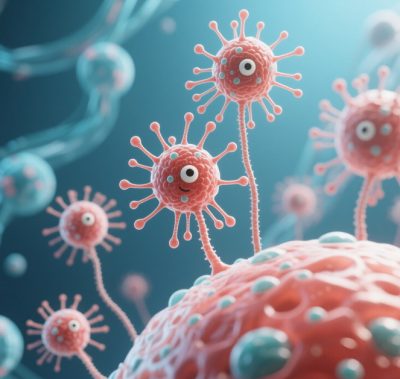
Synthetic Biology and Ethical Debates: Civilizational Transformation in the Age of Technological Acceleration
Synthetic biology (SynBio), one of the most disruptive fields of the 21st century, is redefining humanity’s ability to define, manipulate, and create life. Its core ethical controversies extend beyond lab safety or misuse, challenging the philosophical foundations of human civilization, renegotiating social contracts, and reshaping global governance. This analysis explores the complex landscape through five dimensions.
1. Philosophical Controversies: From “Natural Evolution” to “Programmable Systems”
The Ethical Dilemma of “Playing God”
SynBio blurs the line between “natural life” and “artificial creation” by rewriting DNA code to engineer new organisms (e.g., the synthetic mycoplasma JCVI-syn3.0). Critics argue this oversteps humanity’s role as stewards of life, particularly in projects like synthetic embryos or human-animal chimeras, which challenge traditional religious narratives of life’s origins.
Redefining Life
Engineered cells capable of self-replication, metabolism, and evolution undermine traditional definitions of life. MIT’s xenobots—living robots assembled from frog stem cells—defy classification as either organisms or machines, forcing legal systems to reconsider rights and moral status. Do such entities deserve ethical consideration? Consensus remains elusive.
Consciousness and Sentience
Harvard’s 2019 experiment editing mouse neurons to express the human FOXP2 language gene sparked debates over the ethical status of “synthetic sentience.” If future SynBio organisms gain pain perception or rudimentary consciousness, current animal ethics frameworks will become obsolete.
2. Biosafety and Biosecurity Risks: From Lab Leaks to Weaponization
Unintended Ecological Disasters
Gene drive technology, designed to spread engineered traits through wild populations, carries catastrophic risks. In 2023, Australia’s release of malaria-resistant mosquitoes inadvertently collapsed local predator populations, exposing flaws in ecological risk assessment models.
Bioterrorism Democratized
SynBio lowers barriers to creating deadly pathogens. In 2024, a biohacker group reconstructed the 1918 Spanish flu virus for under $10,000 using open-source tools. Worse, AI-powered protein design tools like AlphaFold3 could enable ethnic-targeted bioweapons.
Regulatory Gaps
The Biological Weapons Convention lacks teeth against SynBio threats. DARPA’s Insect Allies program—using gene-editing insects—faced international backlash but highlights the inadequacy of current international law.
3. Equity and Accessibility: From “Genetic Divides” to Global Justice
Healthcare Inequality
CAR-T cell therapies priced at $500,000 per dose exclude 90% of humanity. Worse, gene-editing anti-aging treatments risk entrenching health disparities between wealthy elites and underserved populations.
Agricultural Neo-Colonialism
Companies like Monsanto market drought-resistant SynBio crops as climate solutions for Africa while using patents to control seed supplies, eroding traditional farming biodiversity under the guise of “philanthrocapitalism.”
Cultural Erosion
Replacing artisanal practices (e.g., Japanese sake fermentation) with engineered microbes threatens cultural heritage. Meanwhile, Amazonian tribes editing psychoactive plants face clashes between cultural autonomy and biosecurity regulations.
4. Global Governance: Balancing Innovation and Control
Dynamic Regulation
The EU’s AI Act classifies SynBio design tools as high-risk, requiring embedded ethical constraints. The FDA’s 2026 Accelerated Approval Guidelines mandate equity impact assessments for therapies.
Blockchain Accountability
Singapore’s global SynBio registry uses blockchain to track gene-editing components. During a 2024 lab leak, it identified 237 risk nodes worldwide within 72 hours.
Cross-Civilizational Dialogue
The Mecca-Boston Declaration on Life Ethics, co-authored by Islamic scholars and SynBio researchers, enshrines “technological humility”—positioning humans as cosmic stewards, not absolute rulers, of life.
5. Future Challenges: Quantum-Bio-AI Ethical Black Holes
Digital Consciousness Paradox
Neuralink’s goal to digitize human consciousness by 2030 raises existential questions: Would a digital “you” in a synthetic body have legal personhood? Would deleting it constitute murder?
Quantum Genetic Chaos
Microsoft’s Station Q lab observed CRISPR-induced quantum entanglement effects (“quantum gene pollution”) beyond current scientific understanding, posing uncontrollable risks.
Self-Evolving Systems
MIT’s EvoGEM circuits mutate beyond human design, rendering static risk-assessment frameworks obsolete for autonomous SynBio organisms.
Conclusion: Crafting a New Civilizational Covenant
The SynBio ethics debate is humanity’s coming-of-age moment: What kind of species do we aspire to become with life-engineering power? A new covenant must integrate:
- Technological Humility: Acknowledge life’s complexity exceeds current human understanding.
- Planetary Boundaries: Limit SynBio development within Earth’s ecological limits.
- Global Equity: Ensure technology benefits transcend geography and class.
- Cross-Species Ethics: Grant moral status to sentient synthetic lifeforms.
As the SynBio Leadership Charter states: “We are not creating life but revealing its deeper possibilities—demanding the rigor of scientists, the reflection of philosophers, and the reverence of poets.”
Data sourced from publicly available information and subject to verification.





